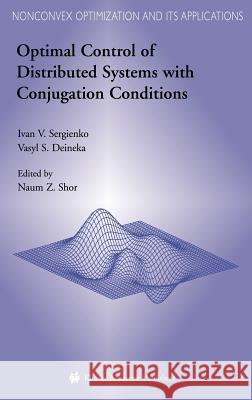Optimal Control of Distributed Systems with Conjugation Conditions » książka
Optimal Control of Distributed Systems with Conjugation Conditions
ISBN-13: 9781402081088 / Angielski / Twarda / 2005 / 383 str.
At present, in order to resolve problems of ecology and to save mineral resources for future population generations, it is quite necessary to know how to maintain nature arrangement in an efficient way. It is possible to achieve a rational nature arrangement when analyzing solutions to problems concerned with optimal control of distributed systems and with optimization of modes in which main ground medium processes are functioning (motion of liquids, generation of temperature fields, mechanical deformation of multicomponent media). Such analysis becomes even more difficult because of heterogeneity of the region that is closest to the Earth surface, and thin inclusions/cracks in it exert their essential influence onto a state and development of the mentioned processes, especially in the cases of mining. Many researchers, for instance, A.N. Tikhonov - A.A. Samarsky 121], L. Luckner - W.M. Shestakow 65], Tien-Mo Shih, K.L. Johnson 47], E. Sanchez-Palencia 94] and others stress that it is necessary to consider how thin inclusions/cracks exert their influences onto development of these processes, while such inclusions differ in characteristics from main media to a considerable extent (moisture permeability, permeability to heat, bulk density or shear strength may be mentioned). Xll An influence exerted from thin interlayers onto examined processes is taken into account sufficiently adequately by means of various constraints, namely, by the conjugation conditions 4, 8, 10, 15, 17-20, 22-26, 38, 44, 47, 52, 53, 68, 76, 77, 81, 83, 84, 90, 95, 96-100, 112-114, 117, 123].











